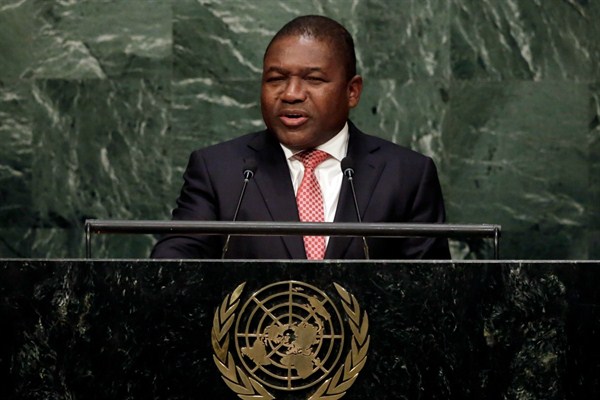Dialogue between the government of Mozambique and the Renamo opposition movement continued to advance this week, with the ruling Frelimo party naming its final negotiating team after three rounds of preparatory talks. Renamo had already announced its expanded team of negotiators last week for the talks, which are to take place under international mediation in an effort to bring an end to a surge in attacks by Renamo followers on road and rail cargo.
The agreement to begin negotiations, and to allow international observers to mediate them, represented a major concession by the government and follows a significant increase in Renamo attacks on key infrastructure, cargo and security forces in the past six months. Renamo resumed a campaign of political violence against the government in 2013, two decades after a civil war between the two sides ended in 1992. A deal signed in August 2014 led to a cessation of hostilities, but violence broke out again after the disputed general election the following October.
Since the beginning of this year, the group has intensified its attacks, regularly firing on road transport along the main N1 north-south highway. On June 7, the group fired on a train operated by Brazil’s Vale in Sofala province, wounding the driver’s assistant. The attack was the first against a train since Renamo stepped up its attacks at the beginning of this year, raising concerns of disruption to freight along the vital Sena line between coal-rich Tete province and the port of Beira. The group has also seized control of government offices and police stations in small towns across north and central Mozambique, in line with its threat to install a parallel governing administration in those regions, where it claims to have won the 2014 election.

